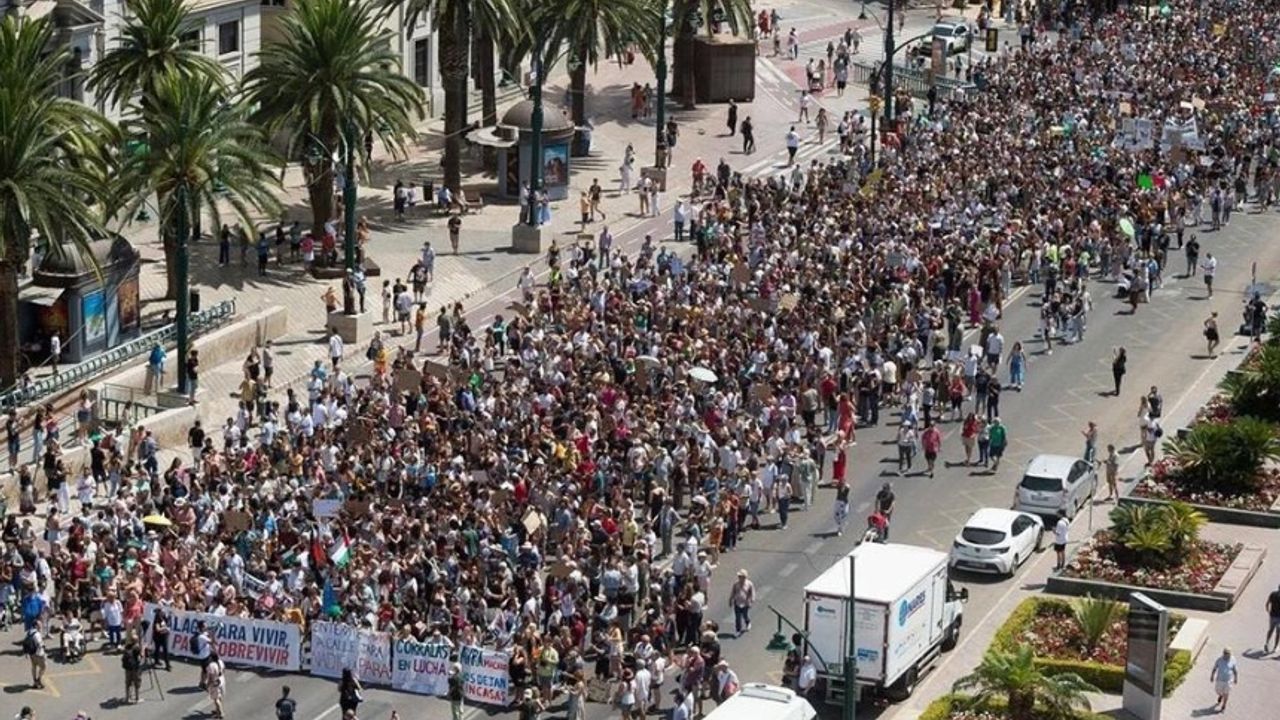Many European destinations have started implementing measures in response to the rising protests against mass tourism.
According to a report by DW Türkçe, some destinations are introducing entry fees and tourist visas, while others are imposing restrictions on short-term rentals for tourism purposes.
Barcelona: Restrictions on short-term rentals
In Barcelona, the widespread practice of renting homes short-term has severely impacted the local housing market. Mayor Jaume Collboni has announced plans to completely end short-term rentals within five years. The city aims to return over 10,000 legally rented vacation homes to the long-term rental market. Residents have protested, blaming tourism for soaring rent prices, which have increased by over 70% in the last decade. Catalonia attracted 18 million visitors last year, making it Spain's top tourist destination.
Mallorca: Housing sale restrictions
Mallorca has also witnessed anti-tourism protests due to high rental prices. Local officials are considering restricting house sales to only island residents, although this may conflict with EU laws. Measures to control the vacation rental sector have been tightened, including a plan to identify and penalize illegal accommodations in Palma. Despite a record 12.5 million tourists last year, the number is expected to drop in 2024 due to limits on cruise ship arrivals in Palma.
Canary Islands: Addressing low wages
With around 14 million tourists, the Canary Islands set a new record but also saw increased local dissatisfaction. The first mass protest against mass tourism in Spain took place here, with demands for a fairer distribution of tourism revenue. Despite the growing number of tourists, average wages remain low. Tenerife, the largest island, will start imposing an "environmental tax" on tourists from next year.
Paris: Increased tourist tax
Paris has tripled the tourist tax for visitors, ahead of the 2024 Summer Olympics. Depending on the hotel category, tourists may now pay up to 14.95 euros per night. France also limits the number of days property owners can rent out their homes through platforms like Airbnb to 120 days per year.
Amsterdam: Ban on new hotels
Amsterdam is among the strictest cities in limiting mass tourism, capping the number of tourist nights at 20 million per year. Following public protests, the city adopted a "balanced tourism" policy in 2021, halting new hotel constructions unless another hotel closes, and encouraging new hotels to be built outside the city center. Future limits on the number of cruise ships docking in the city are also planned.
Greece: Potential cruise ship limits
Greece may also introduce restrictions on cruise ships. Prime Minister Kyriakos Mitsotakis mentioned potential limitations for islands like Santorini and Mykonos, which face issues due to overtourism. The South Aegean, a region consisting of islands, has the highest tourist-to-resident ratio in the EU, with over 100 tourists per resident. Greece recently implemented a "Climate Crisis Resilience Fee" for all accommodation, aimed at aiding tourism authorities in emergencies like wildfires or earthquakes.
Venice: Entry fee for day-trippers
Since this year, Venice charges a 5 euro fee for all day-trippers entering the historic city center on certain days. The measure aims to reduce the number of tourists who visit briefly without contributing to the local economy. The pilot program, which collected 2.2 million euros from 485,000 visitors between April 25 and July 14, may become permanent, with fees potentially doubling next year. Venice attracts around 20 million tourists annually.






